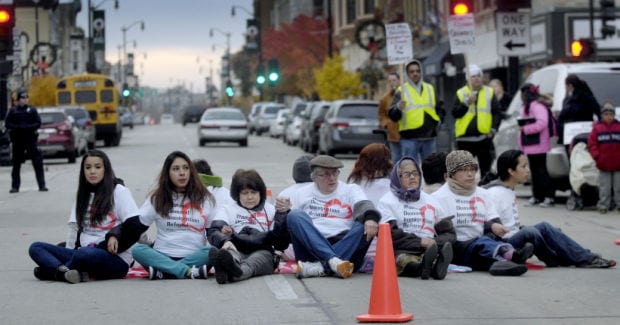
Before we explain why you should never plead guilty to disorderly conduct, a disclaimer: not all cases are alike and while this article gives some good advice, it isn’t intended to be “one size fits all.” Consult with a criminal defense attorney before deciding how to proceed if you’ve been charged with disorderly conduct.
Minnesota Disorderly Conduct
What exactly is considered disorderly conduct? Under Minnesota law, whoever does any of the following in a public or private place, knowing or having reasonable grounds to know, that it will or will tend to, alarm, anger, or disturb others, or provoke an assault or breach of the peace, is guilty of disorderly conduct:
1. Engages in brawling or fighting; or
2. Disturbs an assembly or meeting, not unlawful in its character; or
3. Engages in offensive, obscene, abusive, boisterous, or noisy conduct or in offensive, obscene, or abusive language tending reasonably to arouse alarm, anger, or resentment in others.
That’s quite a mouthful. At first glance it appears that just about anything can be considered disorderly conduct when put in the “right” context. Defense lawyers like to refer to disorderly conduct cases as a “catch all crime.” Police are sometimes confused what crime was committed (or whether a crime was committed at all) and therefore default to disorderly conduct. “We don’t know what to charge you with so we’ll ticket you for disorderly conduct” seems to be the common mentality.
How to Win Disorderly Conduct Cases
Why fight a disorderly conduct charge? Because most, if not all, prosecutors will ask a defendant to plead guilty and be on probation for one year. Some prosecutors may structure a deal where the conviction is changed to a dismissal on a criminal record after probation (known as a stay of imposition with a vacate and dismiss) and virtually no prosecutor will seek jail time. So your options are: (A) plead guilty, be convicted of disorderly conduct, and be on probation for a year with no jail time or (B) go to trial and if you lose, be convicted of disorderly conduct and be on probation for a year with no jail time. The end result is the same, so why not take a shot at trial and try to convince a jury you’re not guilty?
How do you fight disorderly conduct? It depends on the specific charge. It’s very uncommon, rare even, to see a disorderly conduct charge involving a disturbance of an assembly or meeting. Brawling/Fighting charges are more common, but If the State thinks it can prove a person was truly brawling or fighting, they most likely will charge the person with assault, not disorderly conduct (although sometimes they charge both in attempt to increase their chances of getting a conviction). We’ll focus on the most common disorderly conduct charge involving”abusive, obscene, offensive, or noisy” behavior. For the State to convict a person of this charge, it must prove that the person’s actions or words “reasonably alarmed, angered, or caused resentment” in others. If the bad behavior in question exclusively involves words and not actions (that is, a person was yelling or saying bad things rather than physically doing some act that would cause alarm) the State must also prove the words were “fighting words.” These are words that invoke people to fight, are racial slurs, or derrogatory language that essentially tries to get people upset. And if you think about it, most disorderly conduct charges don’t involve this type of language. Simply getting upset and yelling, even shouting, is not disorderly conduct. And if you didn’t do anything illegal, you should never plead guilty. It’s really that simple.
Keyser Law, P.A. is a criminal defense law firm in Minneapolis, Minnesota. Call us at (612) 338-5007 to learn more about winning disorderly conduct cases.





